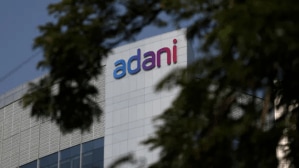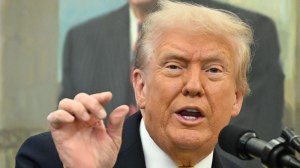Get ready for bold moves on economic front, says PM
In his address to the nation on completing one year in office, Prime Minister Manmohan Singh today promised bold initiatives on the economic...

In his address to the nation on completing one year in office, Prime Minister Manmohan Singh today promised bold initiatives on the economic front, including farewell to ‘‘wasteful subsidies.’’
Emphasising the urgent need for restructuring of public expenditure and improving the climate for investment, the PM set the economic agenda for his government. It was time, he said, to think ‘‘out of the box’’ and act with courage.
‘‘We must reduce wasteful subsidies and divert these resources into needed social sector expenditure, investment and employment generation. I would like to see an improvement in our public finances at all levels of government,’’ Singh said, adding that there was also an urgent need to improve the working of ministries.
‘‘People of the country are impatient for change, impatient for a better quality of life, impatient for new opportunities,’’ he said. In the increasingly integrated and globalised world, the role of the state was being redefined in many sectors.
‘‘The government is moving from being a provider of goods and services to being a regulator and facilitator ensuring fair play.’’ According to the PM, the government had to provide physical and human infrastructure ‘‘to enable individual players to compete in global markets.’’
Singh did not forget to link the role of ‘‘a rapidly expanding economy’’ to tackling problems of mass poverty. While creating a more competitive environment for the organised sector, he said, the government had to do more to protect the interests of workers in the unorganised sector and provide them social security.
Singh also promised reforms in governance. ‘‘We must focus on offering a more efficient government. The reform of the government must acquire a higher profile in our priorities than has been the case so far,’’ he said. Highlighting the thrust areas for his government, he laid emphasis on improving rural infrastructure through the Bharat Nirman programme and educating the next generation.
Referring to the demographic transition that was underway, he said that India would have the world’s largest number of young people in the 21st Century. To take care of their education, social and employment needs, a Knowledge Commission had been set-up.
Releasing a 42-page report—A Caring Government, One year of the UPA Government—the PM said that the mood of the country today was diametrically opposite to what was seen last year.
Taking a potshot at the last NDA government, he said, ‘‘at that time, India was shining for a few and the government could not see what was happening to the many. We have pledged to the people that we do want India to shine but shine for all.’’
Earlier, UPA chairperson Sonia Gandhi spoke on how their government had the task to ‘‘repair India’s secular fabric and restore harmony in our diverse society… to restore the autonomy and professional prestige of the institutions of governance, and of institutions of learning that had been vitiated by the communal virus.’’
Admitting that the Congress had to learn ‘‘participating and governing’’ in a coalition, she said that the alliance’s first year in office had demonstrated that political parties can work together in nation-building without losing their respective identities.
The UPA government, she said, was a coalition with a ‘‘clear sense of social purpose,’’ and with mobilisation and activism as its main thrust. Gandhi said that a beginning had been made and the UPA was on its way to redeeming pledges made in the CMP.






- 01
- 02
- 03
- 04
- 05

























